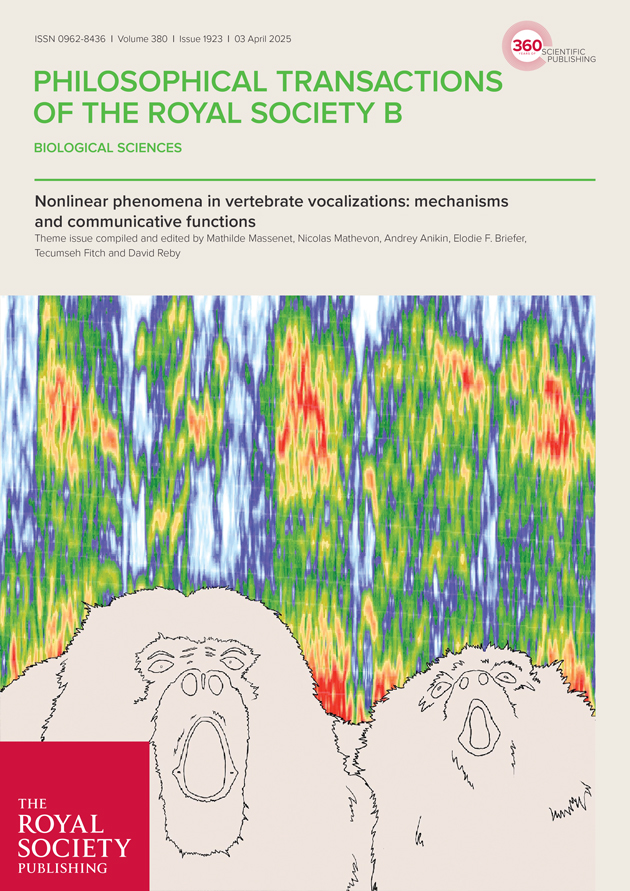To celebrate the 360th anniversary of the start of the Philosophical Transactions, we have invited Guest Editor Dr Mathilde Massenet to tell us what publishing with the journal means to her.

I see the prestigious Philosophical Transactions as a unique opportunity to contribute to the history of scientific discovery by sharing groundbreaking research in my field with the global community. In selecting journals for my work, I indeed prioritize those that facilitate the broad dissemination of research across diverse scientific disciplines. Given its extensive reach and long-standing impact, Philosophical Transactions was a natural choice for us to propose a theme issue on an emerging, hot research topic. Our theme issue on nonlinear phenomena in vertebrate vocalisations aims to inspire future research in the field of human and animal vocal communication, much as the journal itself has inspired generations of scientists over the centuries.

The journal does not merely serve as a platform to review existing work; it also acts as a catalyst for new research. Indeed, the prospect of publishing a themed issue on nonlinear vocal phenomena sparked considerable interest among leading experts in our field, culminating in a workshop held in Saint-Étienne, France. This gathering provided an invaluable opportunity for identifying key knowledge gaps, exploring recent advances, and determining the most pressing and impactful topics for the theme issue. Through these collaborative discussions, we refined our selection of contributors, inviting authors both from within the workshop and beyond whose work aligns closely with the themes of the issue.
The theme issue presents a curated collection of timely articles that assess both past and current research on nonlinear vocalisations, clarify critical definitions, and showcase the latest technologies for studying these phenomena in both human and animal vocal communication. Crucially, it will offer a comprehensive theoretical and experimental framework—one that has yet to be compiled in a single volume or review—making this issue a vital reference for scholars in the field. In addition, by highlighting emerging research directions and fostering interdisciplinary collaboration, this issue will encourage further studies on these fascinating and ubiquitous acoustic phenomena.
On a personal note, guest editing this theme issue has had a profound impact on my career. As an early-career researcher, just two years post-PhD, this opportunity has allowed me to establish my expertise among leading specialists and strengthen my professional reputation. I hope this experience will serve as a stepping stone toward securing a permanent academic position and inspire other young scientists to take on similarly enriching challenges.
This experience has been incredibly formative for me. I found it intellectually stimulating to engage with new empirical research that not only deepened my understanding but also inspired my own work. I also greatly valued the process of reviewing articles and offering constructive feedback, alongside the critical input of the reviewers. Under the mentorship of senior scientists Reby, Mathevon, Briefer and Fitch, I gained tremendous insight into the editorial process—from organizing the workshop to collaborating closely with contributors and the Chief Editors of the journal. In particular, managing editor Helen Eaton offered valuable help in coordinating the publication of the 22 articles included in the theme issue. She was highly responsive, helpful, and gave us robust guidance throughout the entire publication process for the theme issue.
In sum, this experience of guest editing a themed issue has significantly expanded my skill set, and also allowed me to grow as a researcher. I am confident it will be invaluable as I pursue my future career goals.
Visit our anniversary page for more content celebrating 360 years of publishing.




